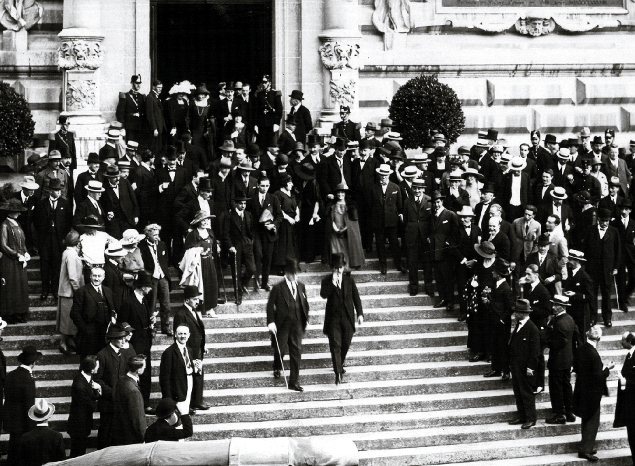
The Lausanne Conference reached an impasse in the early days of 1923.
The Allies were insisting on dictating their own conditions, whereas İsmet Pasha was resisting this imposition with much strength. In his memoirs, U.S. Delegate John Grew conveys this period, which culminated in the departure of the Turkish delegation from the negotiations, as follows:
January 14, 1923 – I made an appointment with İsmet Pasha and visited him at 11 PM for half an hour. Our conversation immediately revealed that he is even more obstinate than before and far from being compromising. He presented the most important issues one after the other and made it clear that unless the views of the Turks are embraced, it will be impossible to negotiate over these issues.
January 15, 1923 – The overall atmosphere of the Conference is disconcerting for everyone; all delegates are pessimistic and depressed… Child, İsmet, and Curzon talked through the night to no avail. Child says that both İsmet and Curzon equally bear the characteristics of both a lion tamer and a honeysuckle breeder.
February 3, 1923 – Curzon told İsmet today that the text of the agreement will be put on the table tomorrow, adding that this will be his last chance if he is willing to sign it. In a meeting they held together with Curzon, Bombard, and Garoni, İsmet Pasha was given the final articles of the agreement that included the ultimate concessions of the Allies…
We kept waiting and hoped to be asked to see the signing ceremony at any moment. Suddenly, at 8 PM, a door was opened upstairs. Everyone rose to their feet and moved towards the staircase. The Pasha was seen in an instant and began descending the stairs with his delegates behind. At the last step, he took of his top hat, turned his head to the right and left, smiled cheerfully, greeted the crowd with much grace, and left the hotel. I will never forget this scene as long as I shall live. The conference was over.